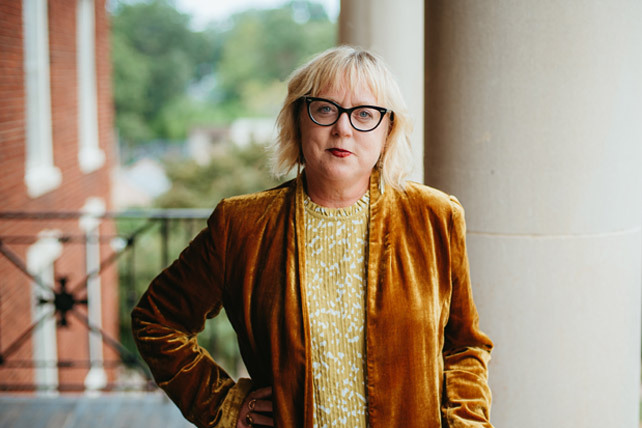While the American church has much to be thankful for with the reversal of Roe v. Wade, it is important that pro-life advocates move forward in their work with caution, nuance and compassion, says Karen Swallow Prior. Prior joined the Stetzer ChurchLeaders Podcast for a special episode to share her thoughts on how the church can move forward well now that Roe has been overturned.
“There are some who…want to celebrate their abortions and are unapologetic,” said Prior, who is Research Professor of English and Christianity and Culture at Southeastern Baptist Theological Seminary. “But that’s not the majority…most people still in their hearts and in their minds, they believe that abortion is an unfortunate kind of circumstance.” This reality, said Prior, is an opportunity for believers to find “common ground” and help people “understand that we actually do care, that we aren’t here to impose our views on women and oppress women.”
Karen Swallow Prior: We Need To Educate Ourselves
Karen Swallow Prior has been involved in the pro-life movement since the late 1980s and says she never expected to live to see Roe v. Wade overturned. Even when she heard about Supreme Court Justice Samuel Alito’s leaked draft, Prior did not at first think the Supreme Court was set to reverse Roe, but that the possibility was merely “a liberal talking point.”
Even so, she said, “I was convinced, even if I wouldn’t live to see it, that abortion would eventually be seen for the barbarism and the injustice that it is. And just simply overturning Roe versus Wade won’t do that alone. But we know that the law is a teacher. The law does cultivate attitudes and opinions and values and even forms our imagination.”
Yet even though she is grateful that Roe has been overturned, Prior cautioned Christians against being hasty with how they move forward, saying that Roe’s absence gives us a unique opportunity to create beneficial legislation.
“For example,” said Prior, “we need to learn the difference between between intervening in the case of an ectopic pregnancy, which is going to be fatal to both mother and child and an abortion.” Because Roe was the law of the land for so long, Christians haven’t had to think through how the answer to such questions will impact the laws we create—but now in some states we have new opportunities.
Said Prior, “We’re going to have to educate ourselves quickly and thoughtfully and not just rush to put legislation in place that would be disastrous or uninformed or medically irresponsible. Of course, we want all of these laws to protect all of the human lives involved, but that’s not something that happens quickly and overnight. We have to really understand what it means to be pro-life and how to apply that in principle.”
In Prior’s view, being pro-life means having a holistic view of human life. For example, the lives of many immigrants might not be in the immediate danger that an unborn child is, but it is still important to understand that we see the lives of immigrants as valuable for the same reason that we see the lives of the unborn as valuable.
“If we are going to oppose the taking of innocent unborn life because that life is made in the image of God,” said Prior, “then we do need to be prepared to think about policies, other policies, in ways that protect those other image bearers.”

